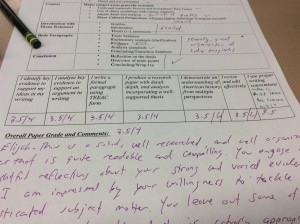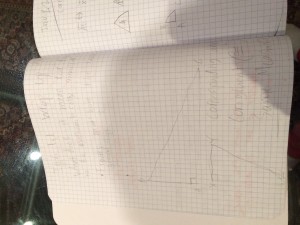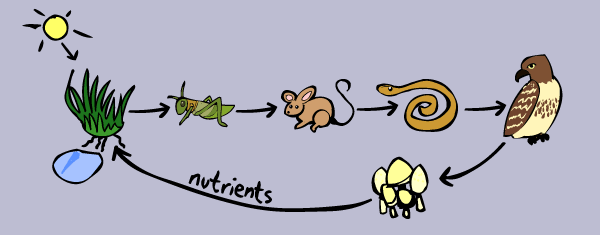
MSS7 December 2016
The Super-Glue of Society: Government, Law, and Punishment in Colonial America
By Elijah Meltzer
In Colonial America laws determined the way people lived their daily life. Those who broke these laws often suffered. Imagine swiping a few apples from a market to support your hungry family, and later being branded on the cheek for the rest of your life. Just one moment of trying to help your loved ones, and for the rest of your entire life, you would be labeled as a criminal. This is how law, punishment, and government worked in Colonial America. There were very specific ways laws were made and the process varied by culture. The courts were very biased in Colonial America, and some people didn’t get the representation that they deserved. Law was even more strict in times of Martial Law, instances and moments in American history when restrictive rules were instituted. People often weren’t happy with these laws, and on rare occasions, some protested. English law in the Virginia Colony was a complex system that included the House of Burgesses, the Governor, and the King of England. Native American law, on the other hand, was decided only by Powhatan. Laws in both of these cultures were essential to creating a fully functional, and thriving society.
There were many parts to English laws and the making of laws in the Virginia Colony. Law making in the colony always involved the House of Burgesses, the Governor, and the King of England. The King of England was the head of the legal system, but he let the other groups basically decide their own laws if they met the restrictions. Every law started in the House of Burgesses.The laws the Burgesses decided on were subject to veto by the Governor, and the Governor’s Council. Then they were sent as charters to England. The King approved and finalized the laws by signing the charter document. The law had to get past many things before it became final. But there were restrictions on who could be lawmakers, and who could elect them.
The House of Burgesses was established in 1619, and it was the first form of representative government in the colonies. However, it wasn’t representative of majority of the population. To vote, or be on the ballot, there were very many qualifications you had to meet. You had to be white, male, own at least 100 acres of land, and be a Christian Protestant. “The enfranchisement of all land-owning white male inhabitants made the assembly a model for future representative institutions that eventually characterized governments throughout British America,” (McWilliams, James. E Government in Colonial America) . This quote shows how small a group the Burgesses were. It was by definition, a representative government, but it only represented the views of a small select group of people. The views of women, Africans, Native Americans, people in poverty, and people who didn’t practice Protestant Christianity were totally unheard. They couldn’t be in charge, they couldn’t even help decide who would be in charge. There was prejudice, and sexism. This was so unfair because they might have really good ideas about things like politics and the way the colony should be run. So not only was the system oppressive towards all groups other than white land-owning, Christian Protestant men, but they were harming themselves as well. They were depriving themselves of huge possible changes for the better. Our world might look completely different today had they let the other groups take parts in government earlier. These restrictions were similar to the restriction of the judges and juries in court.
Judges and Juries often had little, to no legal practice. Much of legal practice was lost on the trip overseas. The very few who did have any, either forgot it, or didn’t use it. The people who ended up doing most of the legal work were highly respected members of the community. They were known as “lay people.” They had to meet the exact same restrictions as the Burgesses and voters. “Because there were no full time lawyers in the colonies in the 1600s, respected members of the community, known as “lay people,” dealt with legal matters on a part time basis,” (Daily Life in Colonial America, Nardo and Don.) This quote shows that there weren’t many people with legal practice, so they relied on lay people. Having lay people make the big decisions might have made the colony have a bunch of unfair rulings. If they didn’t have legal practice, they were bound to be wrong some of the time. This also made a big difference in history. Innocent people might have been killed or punished. We will never know what they could have done for the world. Because of lay people, we might live in a completely different world than if we had real lawyers. Additionally, their decisions were affected by religion.
Religion was primarily what lay people used to make their decisions. It was basically all they had because they had no legal practice. “Most judges, like the legal system itself, were guided less by the legal concepts of facts and fairness and more by religious considerations. The primary goal for a judge was to enforce God’s will.” (Daily Life in Colonial America. Nardo, Don.) This quote shows how much people were afraid of disobeying the views of the christian church, and the consequences that entailed. This meant that some of their decisions weren’t even logical based on the scenario. Their laws then might seem totally crazy compared to our laws now. “Congress shall make no law respecting an establishment of religion,” (U.S. Constitution First Amendment)
The goal of the courts in Colonial America, were very different then what we have now. In Colonial America, the goal of a trial was to get the defendant to confess. But today, we are trying to find out whether the defendant is guilty or not guilty. Their trial was shifted in one direction to favor the prosecutor. It was the prosecutor who got the benefit of the doubt. The prosecutor was allowed to be much harsher on the defendant and the judge would go along with it. This was because that was the whole point of the trial, by their standards. “Indeed, most trials were heavily weighted against the accused person, or defendant. There was a district attorney-like official appointed by the colonial governor; his job was to vigorously prosecute the defendant and get him to confess.” (Daily Life in Colonial America. Nardo, Don.) This quote shows how heavily weighted their system was. The defendant had almost no chance of winning in this system because the system itself was against them. If that was true, how could anybody ever win, if the thing they were trying to win didn’t let them win. It would be impossible. Their system was totally unfair, and it resulted in the punishment, torture, and death of many innocent people. These were the easiest of times if you could believe it! In times of Martial Law, the system changed for the worse.
Under Martial Law in Colonial America, the entire court system was changed. It had already been in favor of the prosecutor, and organized against the defendant, but now, it became even more extreme. “You are still considered innocent until thought guilty, but it’s not exactly proof. In other words, if two of the three officers think you might have been guilty, then you will be executed or punished.” (Interview Williamsburg Va. Nov. 18.) This quote shows how the courts were affected in times of Martial Law. There was already only a tiny chance for the defendant to win, but it was possible. If they were very clearly innocent, they still might have a chance. But in times of Martial Law, the situation became even worse. It wasn’t only the courts that were affected. Daily life was too.
Under Martial Law in Colonial America, the people in society were stripped of their rights. The government could impose its will by way of military force on the people. “Since Jamestown was under Martial law, normal rights weren’t the same. Martial Law basically means using state or national military force to enforce the will of the government on the people. It basically allows the government, or a tyrannical politician, to shred the Constitution and impose its will through military force.” (Interview Williamsburg Va. Nov. 18) This quote shows how horrible Martial Law really was. If there was a corrupt leader during that time, then they could do whatever they wanted. People would be hurt, and killed. Former laws might be changed, and their entire society could go down the drain in a single second. Nobody could oppose the military because they were too powerful. Anything the government wanted, would be done with no questions asked. But that wouldn’t happen, because most of the early governors were terrific.
John Smith was essential to starting the Virginia Colony. He was the very first governor, and he really helped out the colony by being hard on them. The Virginia Company made a huge mistake by paying the gentlemen and boys before the voyage to the New World. Once they got there, they had no incentive to work, because they had already collected their money. John Smith took care of that problem. He was as smart as he was harsh. “If any man should not work, neither should he eat” -John Smith 1608. He gave all of the people incentive to work. He also had the odds against him because he was a yeoman. A yeoman is a poor farmer. When the people of the colony found out their first governor who was chosen by the King was a yeoman, they barely respected him. It made it even harder for him to develop a command over them, but he still pulled through. Somebody with the same method followed him.
Governor Thomas Gates had a very strict mentality that really help the Virginia Colony get started. After John Smith left, the colony was in disarray. Thomas Gates did something that turned it around. “Virginia governor Sir Thomas Gates drafted a code of laws in 1611 that, although harsh, instilled a discipline that helped the colonists survive in the difficult environment.” (Twist, Clint-Colonial America) This quote shows how much Thomas Gates helped the people survive. One of the laws imposed heavy penalties for crimes against the Virginia Company. These new laws really shaped the colony up into doing what they should be doing. Everybody was helping the colony in their own way. Of course that doesn’t mean everything was perfect because there were still things like sexism and prejudice. And there were some people who weren’t in favor of the laws made either.
There was a lot of protesting laws in Colonial America. There were two kinds of protesting. There was English or American patriotic protesting the laws, and there was African protesting against slavery. The Patriots generally protested tax laws from Britain. “Attacks on property took place in some cities in reaction to the Stamp Act. In August, protesters in Boston, spurred on by the Sons of Liberty, attacked and sacked the homes of the lieutenant governor and the stamp master and hanged the latter in effigy from a tree, later to be named the Liberty Tree.” This quote shows how the English protested and what they protested. They mainly protested against tax laws, and they protested brutally, and relentlessly. The Stamp Act was another way for Britain to get tax money from America. The protesters showed no mercy as they killed many people in reaction to this. But for the English, there was only one class who protested.
White men in the Middling class were pretty much the only people who protested for the English. Women couldn’t protest because they didn’t have enough power. Men in the gentry class would have no reason to protest because they were well off already, and some of them even profited from the taxes. White men in the laboring class didn’t have enough money and security that they could protest. If they were punished for protesting, they probably couldn’t survive because they needed money. Africans did protest, but in their own way.
Africans protested in their own way against slavery. They weren’t secure enough to outright strike, or hurt and kill their masters. They had to use more subtle methods. Some of the things they did were working slowly. It slowed down production for the English. Actually, the slaves used work songs so that everybody worked at the same speed. If someone worked too fast, they made the others look like they were slacking, and they often ran out of energy quickly and worked too slow. If someone worked too slow, they would get beaten. The work songs helped everybody stay on pace. Another method of protest was running away. If the slaves ran away, the work force for the English was gone. They needed to work themselves. Another method was music and dance. It was a way to keep their culture and spirits up, when all the English wanted to was to take that away. It also showed that they were resilient and could have fun in tough times. Another method of protest was to destroy property in secret. This was a bit more direct than the other methods, but it also got them in more trouble. It was easier to tell when it was the slaves. But the masters didn’t even need an excuse for punishing the slaves. If they said there was any possibility the slaves had done something wrong, he or she could whip them without anybody paying a second glance. But as the time went on, protesting for both races became more and more organized.
The push for American independence started in 1775. The declaration of independence was signed in 1776. Soon enough, the Revolutionary War broke out. It started with the Boston Massacre. The war lasted until the Battle of Yorktown in 1781. America won the war and became their own country.
Native American Government was very different from English Government. In the Powhatan Confederacy, there was only one leader: Powhatan. He made all the decisions. He was a dictator, so his word was law. “A sachem named Powhatan ruled about 30 tribes and almost 15,000 people. This tribal organization came to be known as the Powhatan Confederacy. Chief Powhatan made decisions.” (Asseline, Kristine Carlson- The Real Story About Government and Politics in Colonial America) This quote shows how much power Powhatan had. All he needed was to say the word, and 15,000 people would run to his side. But there was more involved in the local politics. Their system of government was very similar to what we have now. But it was also very different. They too had one leader who lead a big group of tribes. Powhatan, and our president. A tribe was like a state. Each tribe had a leader, like each state as a governor. Inside tribes were villages, just like cities. There were village leaders, just like mayors. But the difference between us and them is that our government is carefully designed so that no single person can have too much power. The president can’t just do whatever he wants to. He has to have approval from congress. Things congress does are subject to veto from the president. But in their government, Powhatan could do basically whatever he wanted. There was a different tribe farther north who did things a little differently.
The Iroquois Native Americans had a very different system. They had very different views on who could be a leader. “In Iroquois society, the sachem led only during war. During peacetime, Iroquois women were in charge, The women elected the sachem and decided when the community went to war.” The English men were taken aback by this because they assumed that only men could be leaders. The idea probably didn’t even cross their mind that women could lead. Women did most of the heavy lifting in terms of politics for the Iroquois. All men did was lead during war. Women led everything except during war time, and decided when to go to war. The Iroquois were very unprejudiced people.
There were very many parts to government law and punishment in Colonial America. They all worked together to create a functional society. Without them, we wouldn’t have the world we have today, because they shaped their entire world. All of the parts like the courts, the house of burgesses, the jail, and even the Native American government played a crucial role the building of the colony. But law has changed a lot since then. In Colonial Times, laws were made up almost entirely of religion. Today, it’s actually against the law to create a law that’s based on religion. Law meant very different things then and now. We’ve progressed a lot as a nation if you think about it.


